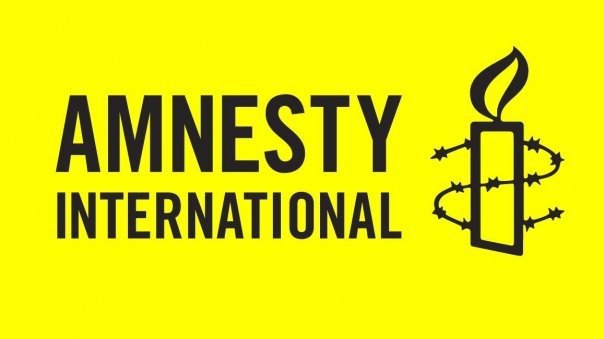
Amnesty Int’l Report Reveals Concerns Over Human Rights in Georgia
Amnesty International has released its annual report on “the state of the world’s human rights” which includes Georgia. The report highlights a number of concerns: “Freedom of expression was further restricted. Selective justice and politically motivated prosecution of government opponents persisted. New laws increased the government’s surveillance powers and further eroded the independence of the judiciary and official watchdogs. Women and girls continued to suffer discrimination and high levels of violence. Failure to effectively investigate torture and other ill-treatment remained a concern in government-controlled and breakaway territories”.
The report notes that Georgia is experiencing a protracted political crisis, and in June 2022, the European Commission deferred granting Georgia EU candidate member status due to concerns over democratic governance, judicial reform, and respect for human rights. According to the report the EU “has given the green light to Ukraine and Moldova to start accession negotiations, but not Georgia, where reforms have stalled or regressed.” The report also highlights the impact of economic inequality, including high levels of emigration among youth due to poor labor market opportunities.
Amnesty International’s report notes that freedom of expression is being restricted by aggressive rhetoric from authorities and defamation suits against journalists. Crimes against journalists are also not being effectively investigated. The report mentions the case of six people convicted for violent attacks on journalists at the Tbilisi Pride march, but not the alleged organizers. In addition, a former security service officer has accused Georgian officials of involvement in the kidnapping of Azerbaijani journalist Afgan Mukhtarli in 2017, with no charges being brought against the perpetrators.
The report notes that the right to privacy has been weakened as Parliament overrode a presidential veto and approved amendments giving law enforcement authorities increased powers for covert surveillance. Covert surveillance tactics have been used against members of the opposition, critical media, and NGOs. In July and September, leaked materials revealed surveillance of journalists, opposition party members, and activists. The Special Investigation Service launched an investigation into potential unauthorized recording and eavesdropping, but no public results were announced by the end of the year.
One of the highlighted issues is unfair trials in Georgia. The report states: “Growing government influence over the judiciary, the use of selective justice, and politically motivated prosecution of political opponents and critical media remained ongoing concerns.” Among other cases, Amnesty International mentions the trial of former Georgian president Mikheil Saakashvili, which continues despite his declining health. The report also highlights the case of Nika Gvaramia, director of Mtavari TV, who was sentenced to 42 months in prison on unfounded charges of abuse of office.
The report briefly mentions the abolition of the State Inspector’s Service, which was replaced with two new agencies. Civil society organizations criticize this move, saying that it limits investigations into human rights violations, including “allegations of torture and other ill-treatment and deaths in custody.” On women’s rights, the report reads: “Between January and September, the media reported 14 cases of murder and 23 cases of attempted murder of women, prompting concerns that femicide and other forms of gender-based violence continue to rise.”
In the subchapter on violations of International Humanitarian law, the report notes that Georgia’s breakaway regions of Abkhazia and South Ossetia/Tskhinvali region saw no progress on impunity for past abuses.
Amnesty International highlights the human rights situation in Abkhazia and South Ossetia/Tskhinvali region. The report notes: “The human rights records of Georgia’s two breakaway regions continued to deteriorate in several areas, including the right to freedom of expression.”
It specifically mentions the case of Gennady Kulayev, who died on 31 August 2020 as a result of injuries sustained from beatings and other ill-treatment in detention. The report also highlights the cases of Inal Dzhabiev and Anri Ateiba, who died in detention as a result of torture or ill-treatment in 2020 and 2021 respectively. These cases remain without effective investigation.
Also Read:
- 29/03/2022 – Amnesty on Rights Violations in Georgia
This post is also available in: ქართული Русский